
Joe Biden trips and falls at Air Force graduation ceremony
Joe Biden tripped and fell on stage as he took part in the Air Force graduation ceremony in Colorado. The president dropped to his knees but was quickly helped back to his feet by officials during the event at the service academy in Colorado Springs on Thursday. Mr Biden, 80, pointed to a black sandbag on the stage seemingly blaming it for the stumble. The president did not appear hurt by the fall and continued to stand on stage until the ceremony ended several minutes later, according to the White House pool. “President Biden fell down on stage after handing out the last diploma to the Air Force cadets. He appeared to slip and fall going down on his knees. He was helped up by Air Force officials,” the pool report stated. White House communications director Ben LaBolt took to Twitter to say that Mr Biden was fine. “There was a sandbag on stage while he was shaking hands,” he tweeted. Mr Biden, a Democrat, is running for re-election in 2024 and his doctors declared him fit and healthy after his February physical examination. Earlier, during the commencement address, Mr Biden warned the graduates that they would enter military service in an increasingly unstable world, citing challenges from Russia and China. And he predicted that Swedend would “soon” join NATO, without giving any details of their entry into the alliance. “It will happen, I promise you,” he said, Read More Watch Biden trip and fall on-stage at Air Force graduation ceremony Biden and McCarthy’s debt limit deal went through – but there are winners and losers Biden tells US Air Force Academy graduates their leadership needed in increasingly confusing world Boeing signs alternative fuel deal with Los Angeles startup to cut carbon footprint Underestimated McCarthy emerges from debt deal empowered as speaker, still threatened by far right Senate passes GOP bill overturning student loan cancellation, teeing it up for Biden veto
1970-01-01 08:00

Senate passes GOP bill overturning student loan cancellation, teeing it up for Biden veto
A Republican measure overturning President Joe Biden's student loan cancellation plan passed the Senate on Thursday and now awaits an expected veto. The vote was 52-46, with support from Democratic Sens. Joe Manchin of West Virginia and Jon Tester of Montana as well as Arizona Sen. Kyrsten Sinema, an independent. The resolution was approved last week by the GOP-controlled House by a 218-203 vote. Biden has pledged to keep in place his commitment to cancel up to $20,000 in federal student loans for 43 million people. The legislation adds to Republican criticism of the plan, which was halted in November in response to lawsuits from conservative opponents. The Supreme Court heard arguments in February in a challenge to Biden's move, with the conservative majority seemingly ready to sink the plan. A decision is expected in the coming weeks. “The president’s student loan schemes do not ‘forgive’ debt, they just shift the burden from those who chose to take out loans onto those who never went to college or already fulfilled their commitment to pay off their loans,” said Louisiana Sen. Bill Cassidy, lead sponsor of the Senate push. The legislation aims to revoke Biden’s cancellation plan and curtail the Education Department’s ability to cancel student loans in the future. It would rescind Biden’s latest extension of a payment pause that began early in the pandemic. It would retroactively add several months of student loan interest that was waived by Biden’s extension. The GOP challenge invoked the Congressional Review Act, which allows Congress to undo recently enacted executive branch regulations. Passing a resolution requires a simple majority in both chambers, but overriding a presidential veto requires two-thirds majorities in the House and Senate, and Republicans aren't expected to have enough support to do that. "If Republicans were to get their way and pass this bill into law, people across the country would have relief they are counting on snatched away from them,” said Sen. Patty Murray, D-Wash. ___ The Associated Press education team receives support from the Carnegie Corporation of New York. The AP is solely responsible for all content.
1970-01-01 08:00
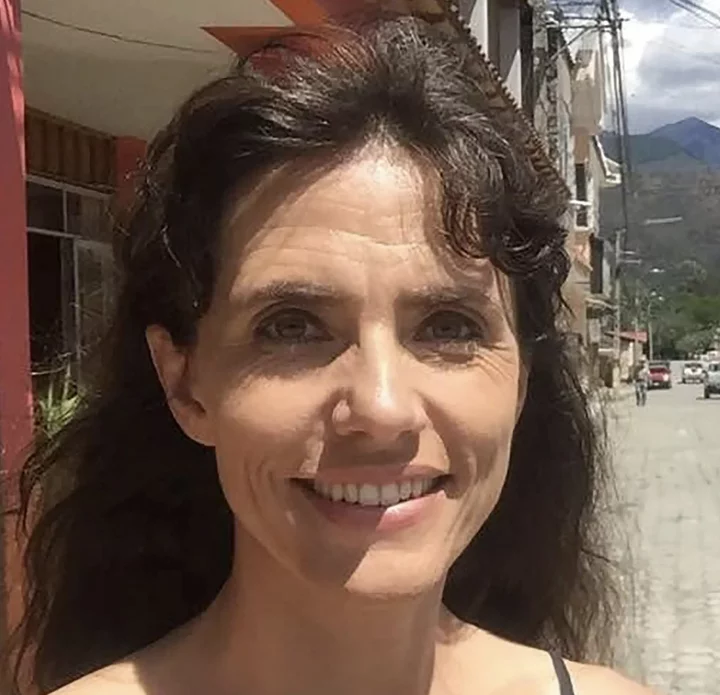
American expat shot dead on her ‘Shangri-La’ off-the-grid farm in Ecuador
A Colorado mother-of-three was shot dead while trying to protect her elderly father during a home invasion at her farm in southern Ecuador. Francesca Williams, 44, was killed when robbers burst onto the family property in the village of Vilacamba where she lived with her father John, husband Michael and the couple’s three teenage daughters on 20 May, according to reports. Michael Williams told KDVR that the first he realised the farm was under attack was when he was struck by a hard object in the head while standing outside and collapsed to the ground. Francesca had been hanging washing when the gunmen showed up, and was fatally shot in the back while trying to protect her birth father John, her adoptive mother Marianna Bacilla told NBC San Diego. John, who suffered from emphysema and dementia, was stabbed three times during there attack but is out of hospital and expected to make a full recovery. The couple’s daughter Rachel told KDVR that she had witnessed the gunfire strike her mother. “I saw my grandpa on the floor with a strange man to the right, then I saw another man with my mom and she was scrambling after him, basically fighting him off,” the teenager said. “Then I saw two sparks of a gun and heard gunshots.” The family reported hearing the men asking in Spanish for the “large aunt”, and believe they were at the wrong address. Michael Williams told the news site he was tied up before the assailants ransacked the home taking any valuables they could find, including iPads and laptops. After they left he discovered his wife badly wounded and drove to the nearest medical facility, but she had already succumbed to her injuries. Her body has since been returned to her former hometown of Kremmling, Colorado, and a funeral is due to be held on 3 June. On a fundraising page set up to help the family, Ms Bacilla said they had moved several years ago to the farm in rural southern Ecuador where they were raising chickens, goats, horses, pigs, ducks and guinea fowl. “It was their humble Shangri-La,” she said. Francesca Williams was described as a devoted wife and mother, who graduated from the University of California, San Diego with a degree in linguistics. She was fluent in French, Spanish and Lithuanian, worked as a translator and had recently published her first illustrated children’s book The King’s Magic. A few days after the attack, Michael Williams said the family were in a “heightened level of anxiousness and security because we aren’t in a safe place”. A GoFundme page has received nearly $30,000 in donations. Read More New Jersey attorney linked to three rapes after family submitted DNA to genealogy website Ecuador lawmakers denounce president's disbanding of National Assembly, argue it wasn't legal Lauren Boebert didn’t turn up to vote on debt ceiling deal she furiously campaigned against
1970-01-01 08:00

American Airlines' reliance on partners faces test after court ruling
By Rajesh Kumar Singh CHICAGO American Airlines' plan to grow revenue by relying more heavily on alliance partners
1970-01-01 08:00
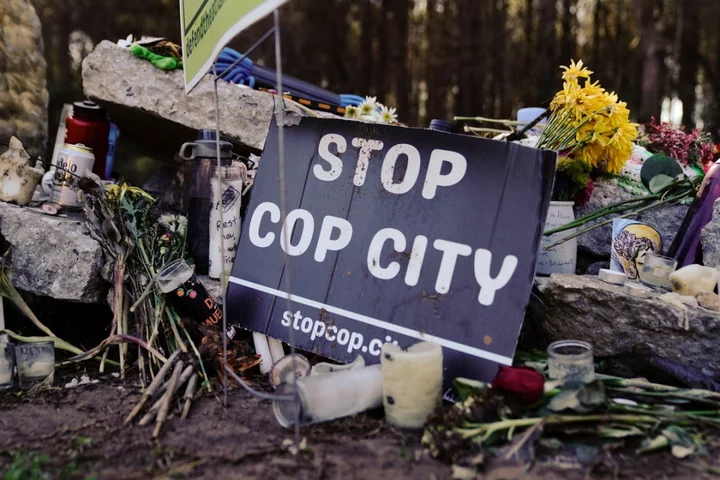
Arrest of ‘Stop Cop City’ bail fund organisers is ‘alarming escalation’ of police retaliation, activists warn
Atlanta police have arrested three organisers behind a nonprofit group that provides bail and legal support to arrested protesters involved with a monthslong campaign against a sprawling, multi-million dollar law enforcement complex. Marlon Kautz, Adele Maclean and Savannah Patterson – all board members with the Atlanta Solidarity Fund – were charged with one count each of money laundering and charity fraud on 31 May. If convicted on money laundering charges, the organisers could face up to 20 years imprisonment and tens of thousands of dollars in fines. Bail fund organisers and civil rights groups have warned that the arrests mark a rapid and unconstitutional escalation of law enforcement retaliation against demonstrators involved with the “Stop Cop City” movement. Atlanta activists also fear that prosecutors are planning to indict those arrested in connection with the protests as a “criminal organisation” under Georgia’s sweeping state-level statute that has been used to target organised crime. Lauren Regan, executive director of the Civil Liberties Defense Center, called the arrests an “extreme provocation” from Atlanta Police Department and state prosecutors. “Bailing out protestors who exercise their constitutionally protected rights is simply not a crime,” she said in a statement. “In fact, it is a historically grounded tradition in the very same social and political movements that the city of Atlanta prides itself on. Someone had to bail out civil rights activists in the [1960s] – I think we can all agree that community support isn’t a crime.” The Atlanta Public Safety Training Center project has been at the centre of “Stop Cop City” protests and occupations since its proposal in 2021, expected to occupy 85 acres in a historically and environmentally significant forest area owned by the city of Atlanta. The police training facility in the South River Forest has drawn widespread opposition from environmental groups and criminal justice reform advocates. Police have arrested dozens of people during protests, including more than 40 people facing “domestic terrorism” charges. The Atlanta Solidarity Fund – among similar organisations across the country that provide bail support and legal aid – has predated the “Stop Cop City” movement and provided grants to a number of groups in the Atlanta area. The fund also has provided legal aid and bail assistance to protesters facing excessively high bonds, with some as high as $300,000. A statement from the Georgia Bureau of Investigation accuses the three arrested organisers with committing “financial crimes”; an arrest warrant for Ms Patterson connects a “money laundering” charge to reimbursements from the nonprofit to a personal PayPal account for expenses including “gasoline, forest clean-up, totes, [Covid-19] rapid tests, media, yard signs and other miscellaneous expenses.” In a statement defending the arrests, Georgia’s Republican Governor Brian Kemp called bail organisers “criminals” who “facilitated and encouraged domestic terrorism”. “As we have said before, we will not rest until we have held accountable every person who has funded, organized, or participated in this violence and intimidation,” Georgia Attorney General Chris Carr said. The arrests of the bail fund organisers on 31 May comes roughly one week after news of the project’s $67m price tag, more than double the $30m projected cost, and days before the Atlanta City Council’s anticipated vote on 5 June on whether to fund the facility. In a written statement prepared in the event of an arrest, Kautz said that criminal charges against the Atlanta Solidarity Fund “will have repercussions on the ability of movements to create change across the country,” a tactic from “a new playbook that criminalizes the coalition of advocates who are providing financial and physical support to movements.” Fair Fight Action, a voting rights organisation founded by Stacey Abrams in 2018, stressed that “legal aid groups and bail funds are, and have long been, critical resources for those seeking to make their voices heard in their communities.” “The timing of the state actions – just one week before a controversial vote – is not a coincidence,” the group said in a statement condemning the arrests. “Bail funds were integral during the Civil Rights Movement, oftentimes serving as the only path to freedom for arrested protesters. The incendiary rhetoric against and criminalization of these institutions by the Kemp administration represents an alarming escalation of tensions in the face of serious community concerns.” Sherilynn Ifill, former president and director counsel of the NAACP’s Legal Defense Fund, said the arrests “demand explanation” from Atlanta Mayor Andre Dickens and Atlanta Police Department chief Darin Schierbaum. “They may wish to recall that targeting the charitable status [and] legitimacy of groups involved in civil rights organizing has a long and ugly history in the South,” she said. “This is dangerous stuff. It is anti-democratic and menacing to organizing and protest – core protected activity in a democracy.” State Senator Josh McLaurin lambasted Mr Carr for what he called an “attempt to score cheap political points by being reckless with people’s lives.” “This empty, 1990s-style tough-on-crime bull**** is tired and dangerous,” he said. Georgia state Rep Saira Draper, whose district includes the area where the arrests were made, said she is “deeply concerned” about the case and the “grossly excessive” use of a SWAT team and helicopters to make the arrests. “What I do know is weaponizing the powers of the state for political gain is abuse of power,” she said. Atlanta City Councilmember Liliana Bakhtiari also said the case deserves “the utmost scrutiny and sensitivity as it moves through the legal process.” Read More Marjorie Taylor Green falsely claims slain Georgia activist killed police officer at Cop City protest Autopsy strengthens case that ‘Cop City’ activist didn’t fire first before being gunned down by police
1970-01-01 08:00

Is Valorant Night Market Coming in June 2023?
Valorant Night Market is returning on June 7 to give players a chance to purchase six randomized gun skins at a discounted price.
1970-01-01 08:00
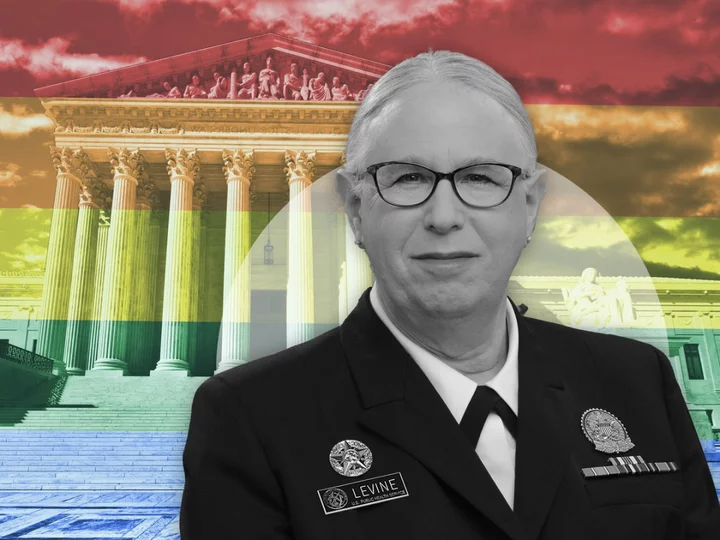
Rachel Levine on Congress bigots, Don’t Say Gay and life as Biden’s top trans official: ‘Despair doesn’t motivate change’
"I'm not the best person for hobbies," says Dr Rachel Levine. In her 40 years of practicing medicine, four of which were spent running the health department of the state of Pennsylvania, she has rarely had much time for recreation. Now she is not only the assistant secretary of state for health for the whole United States under president Joe Biden, but also the most senior openly transgender government official in American history. More than that, she has taken a strong line supporting trans children and transition healthcare at a time when they are under unprecedented attack. According to the non-profit Human Rights Campaign, 19 states have banned transition healthcare for under-18s, and eight more are considering doing so. Meanwhile, medics and patients – including at Boston Children's Hospital, which established the nation's first trans health programme for children and adolescents in 2007 – have received a storm of harassment and threats. "I know the people who developed that clinic. I know them all personally," says Levine, 65, who grew up in Massachusetts and still speaks with a touch of New England in her accent. "I remember when that clinic was formed... now it's under siege by people with political and ideological motivations. "So we need to support trans youth, we need to support their families and we need to support these expert providers that are providing this careful, intentional care according to well-established evidence-based standards." Levine is speaking to The Independent via Zoom from her office in Bethesda, Maryland, flanked by flags, her white hair tied tightly behind her head. As a four-star admiral in the US Public Health Service Commissioned Corps, she wears military-style blue overalls modeled on those of the US Navy and Coast Guard. She does not, she explains, consider herself to be a politician. She has never run for or been elected to office. Instead she sees herself as simply a doctor and a public servant, who now has a rare ability to advocate for her community, as well as overseeing public health areas raging from abortion rights through long Covid to the unequal impact of pollution and natural disasters. But politician or not, her identity has made her a lightning rod for criticism and, sometimes, viotriolic bigotry from anti-trans conservatives. Her name is a fixture in online extremist spaces, where her appointment is painted as part of a conspiracy to overturn traditional gender roles. "When I receive that pushback, I sublimate it," she says, using the psychological term for turning a negative mental energy towards useful ends. "I am a positive and optimistic person because I choose to be positive and optimistic. I can be pessimistic and in despair, but that doesn't motivate change." ‘Trans healthcare is medicine like any other’ Born in 1957, Levine attended an all-boy's school near Boston and studied medicine at Harvard and Tulane University, before completing her training at a hospital in New York City where she specialised in paediatrics and psychology. In 1993, in what she has called her wryly called "most difficult transition", she moved southwest to become a professor at the Penn State, a position she still holds today. In 2015, however, her life took a different turn when Pennsylvania's incoming Democratic governor Tom Wolf asked her to co-chair his health policy transition team and then to be his physician general – a job that would put her right in the merciless gaze of national politics and media. Four years earlier, after decades of "compartmentalising" her feelings, Levine had come out as a trans woman in her fifties. Yet although the backlash against trans rights was already in the offing, her appointment was unanimously confirmed by the state legislature, later becoming Pennsylvania's health secretary and leading its response to Covid-19. Her US Senate confirmation hearing in 2021 was another matter. Republican senator Rand Paul asked her whether children were capable of consenting to medical transition, falsely describing sex reassignment surgery as "genital mutilation". All 50 Democrats and two Republicans voted to confirm her, while the other 48 Republicans voted against. "My confirmation hearing was – interesting," says Levine now, with only the shortest pause, "but not unexpected, and so I was able to navigate that." She adds that although she doesn't deal frequently with Congress, most politicos have treated her "respectfully". As a paediatrician, Levine argues that treatments such as puberty blocking drugs and hormone replacement therapy (HRT) for under-18s should be treated just any other childhood medicine. (Breast removal surgery is rarely prescribed for trans teenagers, and never for younger children, while genital surgery for under-18s is almost unheard of). "Transgender care for youth is medical care; it is mental health care; it is literally suicide prevention care," says Levine. "And it is based upon a well-established standard of care which continually gets updated, as all standards of care do... "It always needs to be done carefully, usually with national or international standards, and then it's individualised to the patient and the family. That's how we do paediatric care. It is no different for transgender medicine." One supportive adult can make the difference Critics of medical transition sometimes liken gender dysphoria – that is, feelings of discomfort or horror related to one's gender – to eating disorders, arguing that both involve an irrational aversion to one's natural body. Levine, who is an expert on eating disorders, pooh-poohs that idea, saying the causes of and solutions to each condition are completely different. Although young trans people do have worse mental health on average than the US population, she says evidence shows that is not caused by being trans but by the way they are being treated by others – a problem exacerbated by anti-trans laws and rhetoric. "Young people who receive support and standard of care treatment have excellent mental health outcomes," she says. "They have depression and anxiety because they're being harassed and bullied, and they're not being allowed to transition. If you facilitate them being who they are, their mental health gets better." Nor is there any evidence, she says, for a theory widespread among anti-trans activists: that young people are being falsely persuaded that they are trans by "social contagion" from their peers. She describes an often-touted 2018 paper by medicine professor Lisa Littman, proposing that trans children may be suffering from "rapid onset gender dysphoria" (ROGD), as "flawed". A group of medical organisations including the American Psychological Association and the American Psychiatric has since warned against applying the concept of ROGD in clinical contexts, describing it as based on "unsupported claims" and likely to "stigmatise" trans people. Littman corrected her paper in 2019 after intense criticism of its methods, and the journal that published it issued an apology. "All the evidence really points to better communication and understanding about gender identity among young people, so that they understand who they are and they come out," says Levine. "There's a lexicon, there's a language, there's support. And more parents understand, and there has been more availability of treatment, and there still is availability of treatment." All of those are things Levine herself never had as a child. "I grew up in the Sixties and Seventies," she says. "There was no terminology, there was no internet, there was no Google. And so I did not understand the thoughts and feelings I was having about gender identity." Even though she had supportive adults in her life, she says there was no way to ask them about being trans because the concept was so unknown. "Who are you going to tell? And what would you have said? None of the language was there." Today she frequently touts a study by The Trevor Project, an American LGBT+ support charity, showing that having even one adult in their life who supports their gender identity can meaningfully lower a young trans person's likelihood of attempting suicide. It is why she is so concerned about Florida's so-called "Don't Say Gay" law and other similar laws, which ban teachers from discussing LGBT+ issues in public schools. "That one supportive adult might be a parent or a relative, but it might not," says Levine. "It might be a teacher, or a coach, or guidance counsellor, or someone else in the community that makes that difference... "[Florida's law] makes it so difficult for a young person to be able to talk to, potentially, that teacher or that coach or that guidance counsellor, because that person then has to immediately tell the young person's parents by that state law." While Republican state legislators seek to pass laws that would make it more difficult for trans people to get healthcare, work in education, or exist in public, a few figures have explicitly called for violence. One GOP candidate last year called for supporters of trans rights to be tried and executed for treason, while a conservative pastor said LGBT+ people should be “lined up against the wall and shot in the back of the head”. ‘Most people in the country don’t hate us’ Some trans people and supporters see all this as a potential precursor to genocide, accusing opponents of wanting to "eliminate" trans people from society by making transition all but impossible. Machaela Cavanaugh, a progressive state legislator in Nebraska, told The Independent last month that trans healthcare bans were a form of "extermination". Does Levine agree? "I would not characterise it as that," she says, although she adds: "I understand the feelings of people who say that, given the hateful rhetoric and the laws and actions being taken." There are many people in the public who have been misled, and I think they are able to be educated about the truth Rachel Levine She likewise rejects the more adversarial approach to fighting for LGBT+ rights that is pithily summarised in the slogan "the first Pride parade was a riot". Instead she sees Pride Month as an opportunity for "advocacy" – for trans people to tell their stories and help educate those who do not understand their lives. The reason, she claims, is that true bigots are merely a "vocal minority", part of a coordinated campaign by conservative think tanks and politicians who lost the argument against gay marriage and are now looking for the next "wedge issue" to divide the electorate. "We're probably not going to change their minds," she says. "But then there are many people in the public who have been misled, and I think they are able to be educated about the truth." She cites the trans author Jennifer Finney Boylan, who wrote that "it's impossible to hate anyone whose story you know", as well as the Jedi master Yoda, who intoned: "Fear leads to anger; anger leads to hate; hate leads to suffering." In other words, people fear what they don't understand – and if they understand more about actual trans people rather than the demonic caricatures of anti-trans invective, they won't go down that path. "I think this is a significant setback, which happens on the road to equality and fairness and freedom. We have seen this in many other times," she says. "So I do not think it will stand, and I think the wheel will turn. "But I do freely admit that it is very difficult and very challenging for members of our community... I think that we are strong, and I think that we are resilient, and I think that we are strong." She pauses for a moment. "But I have to tell you, I choose to believe that." Not all LGBT+ activists feel the same way. Some have accused the Biden administration not doing enough to stem the tide of anti-trans bills, while others have attacked its recent guidance on trans participation in school sports as a surrender to conservatives. Yet Levine is confident that President Biden "supports our community unconditionally", and says there has never been such strong solidarity with LGBT+ people at the top levels of any US government. She cites the President's 13-point executive order last Pride aiming to curb anti-LGBT+ discrimination, the health department's action against conversion therapy, and her work with the Office of Civil Rights to reverse Trump-era changes that weakened rules against discrimination in healthcare. At age 65, she has already seen transgender people go from complete social pariahs, living in the shadows of a society that made no provision for them, to having access to medical transition and at least a chance – sometimes a good chance – of being fulfilled and successful while being open about who they are. So if and when she does have time for hobbies again, what would she do? "I would like to have more time to meditate," she says. "I have meditated in the past and it's pretty hard to add it to my current day, but I have found mindfulness and meditation to be very helpful." Hikes and long walks, too, would be on her agenda. "I used to run," she adds, a little wistfully. "Now I walk." Read More Thousands march in Jerusalem Pride parade, first under Israel's most right-wing government ever LGBT+ flags vandalised for a fourth time at Canada church on eve of Pride Month LGBTQ+ people flock to Florida for Gay Days festival Pride profile: I will be the first asexual grand marshal at NYC’s Pride March Rufus Gifford: The gay man serving as the ‘American welcome’ to foreign leaders Kershaw disagrees with Dodgers’ decision to reinstate gay ‘nun’ group for Pride Night
1970-01-01 08:00
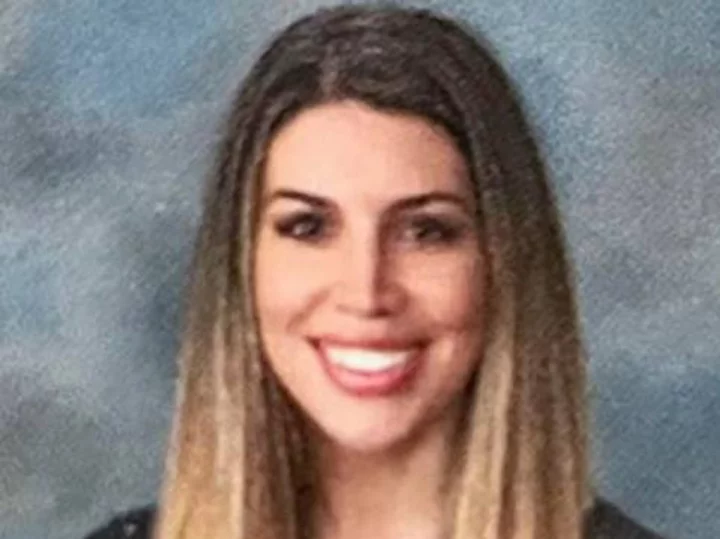
Florida teacher, 26, killed in suspected murder-suicide with 10-month-old baby rescued from crib
A Florida school teacher was killed in an apparent murder-suicide with her 10-month-old baby discovered crying and unharmed in a crib. Amanda Hicks, 26, was found stabbed to death on 27 May after police went to an apartment in Port St Lucie to carry out a welfare check that had been requested by the family of an adult male. Port St Lucie police say that when officers arrived at the home in Peacock Run Apartments they could hear the infant crying inside and when they entered discovered Hicks and the male - later identified as Hicks’ fiancé, dead on the floor from a gunshot wound. The baby was removed from the property and placed with a family member. Investigators said in a statement that Hicks “was killed by an adult male who then took his own life.” Police say that Hicks and the unidentified 25-year-old were “romantically involved.” Port St Lucie Police Sgt John Dellacroce told Fox News Digital that the man had repeatedly called a family member who didn’t pick up the phone - with the final call taking place at 11.50pm. About an hour later, the sound of a gunshot was captured on surveillance video. “His family member didn’t answer the phone and saw all these missed calls the next morning and tried to call him back but couldn’t get a hold of him,” Mr Dellacroce said. He said the relative called police to request a welfare check as soon as they say the missed calls the next morning. Hicks was a sixth-grade reading teacher at Dr David L Anderson Middle School in Martin County, school officials confirmed. In a message sent to parents and staff, school principal Darcia Borel said that Hick’s death was a tragedy. “It is with great sadness that we write to inform you about the tragic passing of one of our teachers, Ms Amanda Hicks,” Ms Borel wrote. “The Port St Lucie Police Department has confirmed that Ms Hicks was the victim of a homicide. While words will never be enough to convey the shock and sadness this news has brought to our school family, it is more important than ever to come together to support one another through our grief journey.” Read More Tourists flee Florida beach in terror as gunshots ring out in harrowing video of Hollywood shooting Hollywood beach shooting – live: Photos show suspects on the run after nine shot on Florida boardwalk A sunny Memorial Day at the beach upended by gunfire: What we know about the shooting in Hollywood, Florida
1970-01-01 08:00

This Security Camera Is Great for Outdoor Areas and Costs Just $33
The Wyze Cam v3 is a versatile security camera that works indoors and outdoors, and you can get it on Amazon for just $33.
1970-01-01 08:00

Lionel Messi will play his last game for Paris Saint-Germain at the Parc des Princes on Saturday, manager confirms
Paris Saint-Germain (PSG) forward Lionel Messi will play his last game for the club on Saturday, coach Christophe Galtier told reporters on Thursday.
1970-01-01 08:00
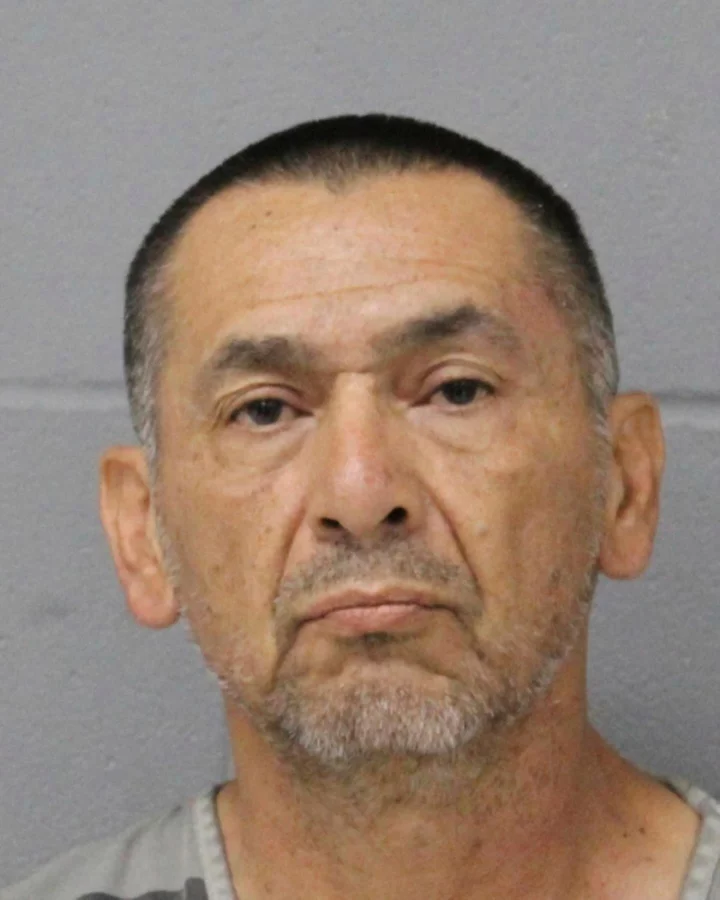
Texas ‘serial killer’ admits to two murders after calling police to turn himself in: ‘You’re looking for me’
A suspected “serial killer” and convicted child rapist was arrested in Austin, Texas, days after he identified himself in a chilling phone call to police. Austin Police Department and Texas’ Lone Star Fugitive Task Force apprehended Raul Meza Jr, 62, at bus stop near Parmer Lane on 29 May, days after he confessed to killing his 80-year-old roommate Jesse Fraga in Pflugerville last month. During a 14-minute phone call, on 24 May, Meza also implicated himself in the 2019 murder of Gloria Lofton at her home in Austin. “My name is Raul Meza and you’re looking for me,” Meza said on the call, Detective Patrick Reed told a press conference on Tuesday 30 May. Meza then detailed his relationship with Fraga and the manner in which he murdered him, including details that had not been made public, Mr Reed said. Fraga’s body was discovered at his home with a belt around his neck on 20 May after the former probation officer’s family requested a welfare check over concerns they hadn’t spoken to him in over a week. Meza reportedly fled the scene with Fraga’s car. Austin Police Sergeant Nathan Sexton added that the Travis County medical examiner noted a puncture mark on Fraga’s neck and a severed cervical spine. Meza also told Mr Reed he had been in and out of prison, adding: “I got out in 2016, I end up murdering a lady soon afterwards. It was on Sara Drive.” Based on details provided by Meza as well as medical information, Mr Reed and his partner Detective Katy Conner identified Meza’s second victim as Lofton, who was strangled on 9 May 2019. “I will let you know that Mr Meza said he was ready and prepared to kill again and he was looking forward to it,” Mr Reed informed the press. After his arrest, Meza was charged with two counts of capital murder, but authorities said they are investigating his ties to “multiple cold cases that have a similar M.O. [modus operandi]”. In 1982, Meza pled guilty to the rape and murder of eight-year-old Kendra Page while she was riding her bike near Langford Elementary School. He was sentenced to 30 years in prison but was released on parole in 1993, after serving 11 years. During the press conference on Tuesday, Deputy US Marshall Brandon Filla described Meza as “the worst of the worst” while interim assistant city manager Bruce Mills said it was a “travesty of justice” Meza had been allowed back on the streets. In an interview with KVUE, Kendra’s sister Shawn Page reacted to the news of Meza’s arrest. Explaining how her family tried to keep Meza in prison, Shawn said: “To find out this has happened to so many other people, it’s a tragedy. My dad knew he was dangerous, and no one would listen to us.” Meza’s rap sheet dates back to 1975, when he robbed a convenience store in Austin with three other teenagers. Meza, 14 at the time, shot the store attendant Derly Ramirez, paralysing him. In 1976, he was reportedly sentenced to 20 years in jail for aggravated robbery before being released on parole in 1981. Meza is being held in Travis County Jail. If you have been raped or sexually assaulted, you can contact your nearest Rape Crisis organisation for specialist, independent and confidential support. For more information, visit their website here. Read More Cameron Robbins: Search called off for teen who ‘jumped off cruise ship as a dare’ Debt ceiling news – live: House votes to approve McCarthy-Biden deal as opposition collapses Iowa building collapse – live: Survivor lost leg in rescue as two others feared trapped in Davenport wreckage Jeffrey Epstein’s island: What really happened there? Trump news – live: Trump ‘caught on tape’ discussing classified papers, trashes DeSantis and Christie
1970-01-01 08:00

Trump news – live: Trump caught on tape revealing he kept classified papers after presidency, report says
In a bombshell development in the classified documents case against Donald Trump, a report by CNN says federal prosecutors have obtained an audio recording of a summer 2021 meeting in which the former president acknowledges he held onto a classified Pentagon document about a potential attack on Iran — potentially undercutting his argument that he declassified everything. The recording indicates Mr Trump understood he retained classified papers after leaving the White House and suggests he would like to share the information but is aware of limitations on his ability post-presidency to declassify records. The network cites multiple sources. Special Counsel Jack Smith, who is investigating the classified papers case, is also looking at the former president’s efforts to overturn his 2020 election loss. In a new development he is examining Mr Trump’s firing of cybersecurity official Christopher Krebs, whose office said the vote was secure, The New York Times reports. Mr Krebs was fired by Mr Trump shortly after the election. Meanwhile, as more Republican contenders join the party’s primary race, Mr Trump has promised a year-long celebration of America to mark 250 years of independence if he wins the presidency again. Read More Trump caught on tape discussing classified documents he kept after leaving White House, reports say Trump legal team asks for judge in hush-money case to be removed Trump accuses DeSantis of faking his own name in wave of attacking social media posts
1970-01-01 08:00
